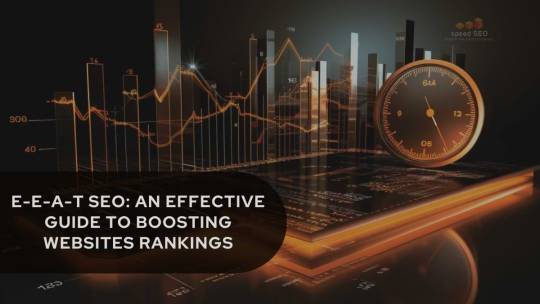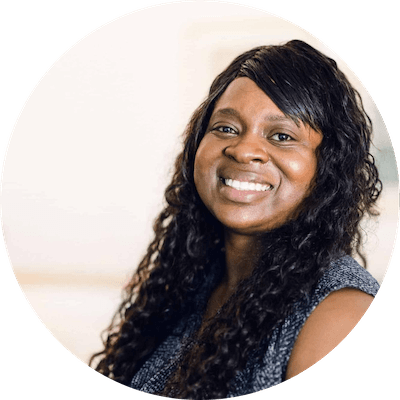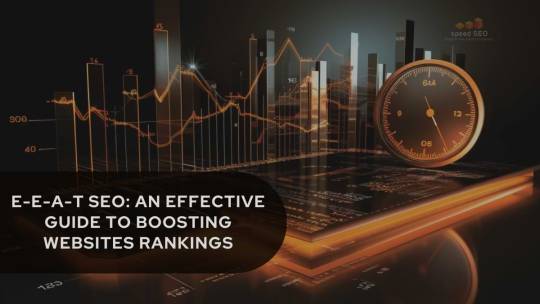#@lilyraynyc
Explore tagged Tumblr posts
Text
E-E-A-T SEO: An Effective Guide to Boosting Your Website's Trustworthiness and Rankings

Do you ever feel like you’re doing everything “right” when it comes to SEO, yet your website still isn’t ranking? You’ve optimised your titles and meta descriptions, carefully researched keywords, built high-quality backlinks, and yet your competitors with “weaker” content are outranking you. Frustrating, right? Well, you’re likely missing a crucial element needed to rank highly in 2023 and beyond: E-E-A-T. E-E-A-T stands for Expertise, Experience, Authority and Trustworthiness. It refers to how much expertise, experience, authority, and trustworthiness your content demonstrates to search engines. In an era of misinformation and “fake news,” search engines are increasingly prioritising websites with high E.E.A.T. scores. Why? Because they want to provide the most authoritative, trustworthy content to searchers. Ignoring E-E-A-T can seriously hinder your SEO success. But optimising for it can catapult your website up the rankings. In this comprehensive guide, you’ll discover exactly how to leverage E-E-A-T to take your SEO to the next level. You’ll learn: - The 4 key pillars of E-E-A-T and how to optimise for each - Proven E-E-A-T optimisation strategies for any business - Real-world examples of sites that boosted rankings with E-E-A-T - A checklist to audit your own content’s E-E-A-T score - Predictions for the future of E-E-A-T in SEO By the end, you’ll have a blueprint to make your website a beacon of expertise, experience, authority and trust for both search engines and visitors. Ready to unlock the power of E.E.A.T.? Let’s dive in! Table Of Contents E-E-A-T Explained: The Four Pillars of Trustworthy Content The E-E-A-T Impact: How It Shapes Your SEO Strategy E-E-A-T Optimization: Proven Strategies for Boosting Your SEO Success Stories: Real-World E-E-A-T Optimisation Case Studies YMYL Topics: The Intersection of E-E-A-T and High-Stakes Information E-E-A-T Checklist: Ensuring Your Content Meets the Mark The Future of E-E-A-T: Predictions and Trends to Watch Conclusion: Harnessing the Power of E-E-A-T for SEO Success E-E-A-T Explained: The Four Pillars of Trustworthy Content E-E-A-T stands for Expertise, Experience, Authoritativeness, and Trustworthiness. Optimizing your content for these four pillars is crucial for boosting your website's expertise and trust signals in the eyes of search engines. Let's break down what each pillar means: The Power of Expertise https://twitter.com/lilyraynyc/status/1603489351580647424 This refers to the depth of knowledge and skill demonstrated in your content. To showcase expertise: - Provide quality, detailed information on the topic - Share credentials of contributors like degrees, certifications, years of experience - Cite trustworthy external sources and data to back up claims - Use advanced vocabulary suited to the topic As an SEO specialist writing about ranking factors, your advanced knowledge of algorithms, indexing, etc. displays valuable expertise. Experience is Key when Writing Meaningful Articles https://twitter.com/rustybrick/status/1603835099933442079 This encompasses the firsthand experience and real-world testing included in your content. To highlight experience: - Share case studies and client examples - Include interviews and quotes from practitioners - Provide visual demonstrations and step-by-step guides - Discuss your own hands-on experience with the subject For instance, an SEO pro could talk about their experience optimising real sites and the results achieved. Authoritativeness Goes Beyond Simply Expertise and Experience Image by Power The Saurus This refers to your site being viewed as an authority on the topic. To establish authority: - Have a professional, trustworthy domain name and branding - Create robust author bio pages highlighting contributions and accomplishments - Secure backlinks from other authoritative sites - Have longevity and history publishing content in this space An established SEO blog that has published respected content for years has more authority than a personal site. Trustworthiness Is Key for Your website's Success This encompasses all the signals that make your content credible and reliable. To build trust: - Make sure information is accurate, current, and unbiased - Cite sources clearly and link out to high-quality external references - Present balanced perspectives, not just your own opinions - Avoid hype, exaggerated claims, or misleading statements - Disclose any affiliations or sponsorships shaping the content Providing objective, honest advice builds reader trust over the long term. Optimising for all four pillars of E.E.A.T. establishes your overall expertise and authority on a topic, leading search engines to view your content as trustworthy. The E-E-A-T Core Elements of Your SEO E-E-A-T should be a core part of your SEO strategy. Here’s how optimising for it can shape your approach: 🗝️ Keyword Research When brainstorming keywords, go beyond volume to consider relevance and how well your site can “own” the topic with authoritative content. Ranking #1 for lower competition, E-E-A-T keywords can drive more qualified traffic than broader terms. 📝 Content Creation Build out pillar pages targeting head keywords, then create supporting content like blog posts to bolster your expertise on subtopics. Include visual assets, custom examples, and media to demonstrate experience. 💡Content Optimisation Perform on-page optimisations like internal linking to showcase the breadth of your knowledge. Explain terminology clearly for newcomers while providing depth for experts. 🔗 Backlink Building Prioritise backlinks from authority domains writing about the same topics. Guest posting on niche industry publications can lend credibility. 📲 Site Accessibility Make sure your website provides easy access to author bios, contact info, and other trust markers. Quickly convey your experience and expertise. ✨ Reputation Management Monitor online conversations about your brand. Respond professionally to critiques and highlight customer success stories. Your visible commitment to transparency builds trust. By optimising all of these elements for E.E.A.T., you’ll develop an authoritative site that search engines intrinsically trust to provide the most expert information on a given topic. The result? Increased organic visibility and reduced reliance on gimmicky tactics. The E-E-A-T Impact: How It Shapes Your SEO Strategy Optimising the E-E-A-T of your content can significantly influence where you rank in search engine results pages (SERPs). Here are some of the ranking factors impacted by E.E.A.T.: - Page authority - Sites with higher E.E.A.T scores tend to have greater authority in search algorithms, leading to better rankings. - Click-through-rate - Searchers are more likely to click on results from authoritative sites, increasing click-through-rate. - Dwell time - Users spend more time on pages with trustworthy expertise, boosting dwell time. - Bounce rate - Strong E-E-A-T keeps bounce rate lower, as visitors find answers and continue exploring. - Links - Authoritative sites earn more high-quality links from sources covering the same topic. - Complaints - Poor expertise often generates user complaints to search engines, dropping rankings. - Manual actions - Lacking E.E.A.T can lead to manual spam downgrades by human raters. By contrast, pages with low or fake expertise typically underperform on these key ranking factors. They lack the authority and trust to rank highly. In competitive spaces like medical advice or financial information, E.E.A.T is make-or-break. But even less competitive topics benefit from optimising for expertise and trustworthiness. Improving your content's E.E.A.T profile should be central to your SEO strategy if you want to maximise rankings. It's one of the most influential factors search algorithms evaluate. But how exactly can you start optimising your own content for better expertise, experience, authoritativeness, and trust? Coming up, we’ll dive into powerful optimisation strategies and examples that can level up your website’s E-E-A-T—and rankings. You’ll discover proven techniques to make your content a trusted resource that search engines want to showcase to users. Let's move on to the tactics and best practises to make E-E-A-T work for you. E-E-A-T Optimisation: Proven Strategies for Boosting Your SEO Ready to start optimising your own content for better E-E-A-T? Here are powerful strategies to employ: Sharing Personal Experience Leverage your firsthand experience and testing within your content. Include real examples, like: - Case studies of clients/sites you've optimised - Screenshots demonstrating website changes - Video walkthroughs of you actually making optimisations - Interviews describing your process and insights Discussing your hands-on work builds credibility and shows real expertise. Featuring Industry Experts Quote and link to recognised leaders in your space to tap into their authority. You can: - Interview thought leaders about their perspectives - Get expert opinions on trends in your niche - Ask for guest contributions and co-authored posts - Publish Q&As explaining how experts approach topics Spotlighting external experts also bolsters your own site's authority through associations. 👁️Pro Tip: Mix personal experience with curated expert opinions for maximum E-E-A-T impact. Optimising the E-E-A-T of all your pages takes real work - but pays off exponentially in increased trust and reduced reliance on shady tricks. Next, we’ll reveal the astonishing ranking increases real sites have achieved through expert E-E-A-T optimisation. You’ll see specific examples and results from improving authority and trust signals. Let’s continue our E-E-A-T journey... Success Stories: Real-World E-E-A-T Optimisation Case Studies Let’s look at real-world examples of sites that leveraged E-E-A-T optimisation to boost their search rankings: Medical Advice Site A health advice website hired doctors and nurses to audit their content and cite trustworthy sources like CDC studies. They also created editor bios highlighting medical experience. Results: Their rankings for high-competition keywords jumped 24 spots in just 3 months. Outdoor Magazine An outdoor recreation magazine focused on showcasing staff field testing of products and interviews with athletes sponsored by gear brands. Results: The hands-on authenticity helped grow organic traffic by 62% year-over-year. SMB Marketing Agency A small marketing agency revamped their services content by linking to recognised industry experts and certifications. They also added case studies with specific performance data. Results: Their rankings for "small business marketing services" leapt from page 3 to page 1 of Google in 2 weeks. 👁️ Pro Tip: Don't keep your E-E-A-T successes to yourself - feature results prominently on your site. Optimising for expertise, experience, and trust can lead to astonishing ranking improvements. But maintaining high standards requires continued effort. Coming up, we’ll cover how to monitor and continually improve your content’s E-E-A-T with the right checklist approach. You’ll get a blueprint for sustaining authority and trust over the long-haul. Let’s keep the E-E-A-T insights coming! YMYL Topics: The Intersection of E-E-A-T and High-Stakes Information YMYL stands for “Your Money or Your Life” - these are topics that directly impact people's lives, finances, health, safety, or other high-stakes issues. YMYL topics range from medical advice, financial guidance, legal information, to news and current events. They require high levels of expertise, trust, and authority. Why are they crucial for E-E-A-T? Because providing low-quality or inaccurate information on YMYL topics can severely harm readers and cause mistrust in your brand. Search engines will penalise sites with weak E-E-A-T scores in YMYL categories. For example, an under-researched article on treating illness could recommend dangerous advice. Or poorly informed financial tips could lead to catastrophic money losses. That's why YMYL content demands the highest standards for expertise, trustworthiness, and citing reliable sources. Never present opinions as fact. Vet all information thoroughly and objectively. Optimizing YMYL content for E-E-A-T should be a top priority. Dedicate your best subject matter experts and editing resources. Make sure page design, branding, and tone instill confidence. In competitive YMYL spaces, extensive expertise and pedigree are must-haves. Jewelry shop content simply won’t cut it for medical or legal advice sites. Now that you understand why E-E-A-T optimisation is critical for YMYL topics, let’s look at specific strategies to bolster your own content’s expertise and trustworthiness next. E-E-A-T Checklist: Ensuring Your Content Meets the Mark Show author/contributor expertise and credentials Include real-world examples and case studies Cite external reputable sources and references Avoid hype, bias, or misleading info Thoroughly research and fact-check information Prioritize E-E-A-T for YMYL topics Include specific data and measurable results Organize content logically and cohesively Easy to find author bios and contact info Monitor and respond to user feedback Print PDF Checklist The Future of E-E-A-T: Predictions and Trends to Watch As search engines get smarter, E-E-A-T will only grow in importance for SEO success. Here are key trends and predictions to watch: RankBrain Advancements Google's RankBrain algorithm will keep improving at assessing expertise and trustworthiness based on linguistic factors like tone, rhetoric, and cognitive complexity. More Manual Reviews Google has expanded its team of human raters who manually review pages for quality and accuracy. Pages lacking E-E-A-T are more likely to get flagged. AI Content Detection Sophisticated AI will grow adept at identifying automated or "spun" content lacking expertise. Unique, authoritative content will win out. Data as Power Including more customer data, testing metrics, and real-world examples will be expected to back claims. Well-researched statistics will be in demand. Mobile Optimisation With mobile first indexing, showcasing author credibility and evidence will be compressed above the fold. Minimalism with maximum authority will be key. As Jesus Guzman says, "In the future, establishing expertise will be one click away - but losing trust will still take just one bad recommendation." The stakes for E-E-A-T are higher than ever. But brands who double down on high-quality content will reap long-term rewards in loyal audiences and consistent growth. Are you ready to dive in? Our final section will summarise all the key takeaways into an actionable E-E-A-T optimisation blueprint. Let's bring it home! Conclusion: Harnessing the Power of E-E-A-T for SEO Success After reading this guide, you should now understand what E-E-A-T is, why it’s important, and how to optimise your content to boost expertise and trust signals. Let’s recap the key tips: - Focus on E-E-A-T pillars: Expertise, Experience, Authoritativeness, Trustworthiness - Leverage real-world examples, data, credentials to establish authority - Prioritize E-E-A-T for YMYL topics impacting money, health, safety - Curate expert perspectives in addition to providing own insights - Monitor user feedback and address criticisms or concerns - Maintain high-quality standards continuously as algorithms evolve By mastering E-E-A-T SEO, you can transform your site from a faceless media property into a trusted destination that searchers inherently gravitate towards. The rewards are well worth the effort. Start applying what you've learned today to get your content in front of more eyes, earn higher rankings, and ultimately - provide tremendous value to readers. You now have an expert-level understanding of E-E-A-T SEO. Go ahead - flaunt your expertise! Read the full article
0 notes
Text
Helpful Content Doesn't Equal Sitewide Quality

Google's Helpful Content Update Targets Websites Lacking Sitewide Quality Google's latest algorithm update, dubbed the Helpful Content Update (HCU), aims to highlight websites that provide truly helpful, useful, and beneficial content for users. The update targets sites that may have some high-quality articles but still contain a significant amount of low-quality, unhelpful content across the website. The goal is to ensure sites are offering a consistently great experience for searchers seeking information. While individual helpful articles are appreciated, they are not enough to override a history of poor quality content overall. With this update, Google reveals that having sporadic helpful articles sprinkled between many mediocre ones does not constitute sitewide quality. There's been a lot of debate about sites claiming to have been unfairly hit by Google's Helpful Content Update. I wanted to share Lily Ray analysis of some of these sites, and a key takeaway: Sometimes what we think is helpful doesn't match what readers actually find useful. https://twitter.com/lilyraynyc/status/1774827325298811279?s=20 Brief Background on Google's Focus on Helpful Content Providing helpful content that satisfies user intent has long been a priority for Google. The search engine giant has rolled out various updates over the years aimed at surfacing websites and pages that offer a useful, beneficial experience for searchers. Some notable examples include: - Medic Update (2020) - Targeted health websites providing inaccurate, harmful, or misleading information. - Your Money, Your Life (YMYL) Update (2014) - Focused on websites covering topics directly tied to user wellbeing like finance, health, and safety. - Panda Update (2011) - Penalized low-quality sites with thin, duplicate, or auto-generated content. The Helpful Content Update represents Google's latest effort to weed out unhelpful content and give sites producing truly useful articles an advantage. The Purpose and Goals of the Helpful Content Update So what exactly constitutes "helpful" content in Google's view? With this update, Google wants to highlight websites with informative articles that: - Provide valuable information readers are searching for - Are well-researched and accurate - Use expertise or firsthand experience to offer a unique perspective - Have a clear purpose and present information in a logical, easy-to-follow format - Utilize headings, lists, images, videos and other elements to enhance the content - Are useful and beneficial for the reader, satisfying the user intent In short, Google wants to surface content that leaves searchers feeling like they've found the information they were seeking and gained real value from the website. Primary Keyword Targeted The primary keyword Google seems to be targeting with this update is "helpful content." Searching for this term provides a mix of articles discussing the update itself, as well as guides on how to create genuinely helpful website content. This suggests Google is working to highlight sites with authoritative, useful advice around optimizing content for searchers, while demoting sites simply churning out articles to capitalize on the update announcement. Google Aims to Highlight Websites Offering Truly Helpful Content While Google has always tried to reward helpful content as part of its core algorithm, the Helpful Content Update makes this an even bigger focal point. With this update, Google wants to give sites producing truly useful, high-quality content an advantage in rankings. At the same time, it aims to demote low-quality sites that may have some decent articles but still have large volumes of content that don't actually help or inform readers. Useful, Beneficial Information for Users Google isn't just looking for generic "good" content with this update. They want to see informative articles that provide real value to the reader. For example, a detailed guide on "how to start a blog" with actionable tips and recommendations is much more beneficial than a vague article simply defining what a blog is. The former satisfies the user's intent while the latter does not. Creating content specifically tailored to match searcher intent is key. Sites doing this well should be rewarded by the Helpful Content Update. Individual Helpful Articles Are Not Enough Here is the critical point the Helpful Content Update makes - having some helpful articles on your site does not override having a significant amount of low-quality, unhelpful content. Google has made it clear they are evaluating overall website quality, not just cherry-picking certain pages. Having sporadic high-quality articles peppered between mediocre or thin content does not constitute consistent sitewide quality. Need for Consistent Quality Across All Website Content With this update, Google reveals they expect sites to maintain a high standard of helpfulness across all their content, not just a handful of pages. Having 1 or 2 well-researched, useful articles out of 100 is not enough. Poor quality content like thin articles with little substance, duplicate content, or content created just to target keywords will still get sites penalized. Helpful content should be the norm, not the exception. Google Conducts Sitewide Assessments A critical aspect of the Helpful Content Update is that Google is evaluating the overall quality of sites, not just individual pages. Having a few helpful articles sprinkled across a site with mainly poor content will not fool Google. History of Unhelpful Content Can Still Get Sites Penalized With this update, Google makes it clear they are looking at the full history of a site's content quality. Sites can't just churn out some high-quality articles after years of low-quality ones and expect rankings to improve overnight. Google will assess whether the majority of a site's articles have been unhelpful or not fully meeting user intent over time. If so, the site may still be demoted even after publishing some newer helpful content. Improving quality needs to be an ongoing, sitewide effort. Examples of Sites Impacted Despite Having Some Helpful Content The Helpful Content Update revealed that even sites with some legitimately helpful content were still vulnerable if the rest of their content didn't meet the same standards. Here are a few examples: - Health and medical sites with a mix of well-researched articles and content promoting unproven supplements or products - Finance sites with mostly useful budgeting and investing tips but also pushing “get rich quick” schemes - Tech tutorial sites with some helpful “how-to” articles but many thin articles just targeting keywords For these sites, the problem wasn't that they had no helpful content, but rather that this content represented only a small portion of what the site produced. The majority of their articles were still low-quality or unhelpful. Metrics That May Have Triggered the Update Google likely used metrics like click-through rate, time on site, and E-A-T (Expertise, Authoritativeness, Trustworthiness) to identify sites where helpful content was the exception, not the norm. For example, if the majority of a site's articles had low CTRs and dwell time, it suggests the content quality was not satisfying user intent overall across the site. Google picked up on these quality gaps, which the Helpful Content Update aimed to address. Steps Sites Can Take to Improve Overall Content Quality For sites impacted by the Helpful Content Update, the path forward is clear - improving content quality across the board, not just on a few pages. Here are some best practices: Conduct a Content Audit - Review all site content using both qualitative checks and metrics like CTR. Flag low-quality or unhelpful articles. - Categorize content by quality - good, average, low. This will reveal areas needing work. - Identify common issues dragging down quality - thin content, lack of research, etc. Fix these systematically. Optimize Existing Content - For previously published articles, prune and enhance content identified as low-quality during the audit. - Ensure content provides value, meets searcher intent, and is easy to consume. - Add new sections, multimedia, research sources and links to authority sites to improve articles. Raise Standards for New Content - Update content guidelines to require factual accuracy, sources, multimedia, useful length etc. - Provide writers with training and resources around creating really helpful, engaging content. - Implement stricter oversight and editing for new articles to ensure consistent quality. Conclusion: Helpful Content Alone Doesn’t Equal Sitewide Quality The key takeaway from Google's Helpful Content Update is that sporadic high-quality articles are no longer enough. While these individual helpful articles are certainly appreciated, sites must maintain quality and usefulness across all content to avoid loosing ranking positions in the SERPs. Going forward, sites should continuously audit content using both qualitative checks and metrics like CTR. Identify low-quality articles and systematically improve or remove them. Useful, well-researched, accurate content tailored to searcher intent should be the norm for every article. By taking steps to improve overall content quality, sites can provide the consistently helpful experience Google wants searchers to have. The path forward is clear - don't rely on just having some helpful content. Make sitewide quality the priority. Read the full article
0 notes
Text
Sneak Peek: The Initial MozCon 2022 Speaker Lineup
Have you been waiting on the edge of your seat for MozCon to start rolling out the lineup of speakers? Well, my friend, today’s the day so hold on tight!
We’re thrilled to announce the first 15 extraordinary speakers that will be taking the MozCon 2022 stage in Seattle this July (in alphabetical order).
Meet the speakers
Amalia Fowler (she/her)

Founder, Good AF Consulting @AmaliaEFowler
Amalia is the Founder of Good AF Consulting, a Vancouver, BC consulting firm where she helps companies build great marketing teams. She's also a marketing instructor at the British Columbia Institute of Technology and creator of The Wholehearted Manager, a newsletter for people who believe in leading with their heart, and that all employees deserve a safe space to work. Amalia has been in search marketing for eight years, with her work focused on helping businesses understand marketing strategy, mentoring new marketers, building exceptional marketing teams and advocating for more ethical and transparent practices in our space. Her favorite saying is "It Depends," because context is everything.
Amanda Milligan (she/her)

Head of Marketing, Stacker @millanda | @stacker
Amanda Milligan is the Head of Marketing at Stacker Studio. With a degree in journalism and a decade in content marketing, she’s spent her career helping brands harness the intersection of content and SEO.
Andy Crestodina (he/him)

Co-founder / CMO, Orbit Media Studios @crestodina | @orbiteers
Andy Crestodina is the co-founder and CMO of Orbit Media, an award-winning 50-person digital agency in Chicago. Over the past 20 years, Andy has provided digital marketing advice to over 1,000 businesses.
Areej AbuAli (she/her)

Head of SEO, Papier (areejabuali.com) @areej_abuali | @TechSEOWomen
Areej is Head of SEO at Papier where she focuses on all things technical and on-site SEO. She is the founder of the global Women in Tech SEO community and has been in the digital marketing industry for over eight years.
Crystal Carter (she/her)

Head of SEO Comms, Wix @CrystalontheWeb
Crystal Carter is an SEO and digital marketer with over 15 years experience working with clients like Disney, Tomy, Kikkoman, and more. She shares insights in leading publications like Google Webmaster Central, The Moz Blog, Search Engine Land, and Women in Tech SEO.
Hannah Smith (she/her)

Founder, Worderist @hannah_bo_banna
With more than 15 years in the SEO industry, Hannah's creative work has won multiple awards, and she's worked with a range of companies including the BBC, Dyson, Expedia, MailChimp, and Salesforce.
Jackie Chu (she/her)

SEO Lead, Intelligence, Uber @jackiecchu
Jackie Chu is currently the SEO Lead, Intelligence for Uber, driving analytics and tooling for the SEO teams globally. She has deep experience in technical SEO, content SEO, ASO and international SEO spanning both B2B and B2C industries.
Joe Hall (he/him)

SEO Consultant & Principal Analyst, Hall Analysis @joehall
Joe Hall is an executive SEO consultant focused on analyzing and informing the digital marketing strategies of select clients through in-depth data analysis and SEO audits.
Lidia Infante (she/her)

Senior SEO Manager, BigCommerce (lidia-infante.com) @LidiaInfanteM | @bigcommerce
Born and raised in Barcelona, Lidia has been working in SEO for over eight years. She's been helping businesses in e-commerce, media and B2B reach their audiences on search across European markets, the US and Australia. She has leveraged her BSc in Psychology and Master's in Digital Business to drive organic growth for e-commerce sites, media, and SaaS.
Lily Ray (she/her)

Senior Director, SEO & Head of Organic Research, Amsive Digital @lilyraynyc | @amsive_digital
Lily Ray is the Sr. Director, SEO & Head of Organic Research at Amsive Digital, where she provides strategic leadership for the agency’s SEO client programs. Lily began her SEO career in 2010 in a fast-paced start-up environment and moved quickly into the agency world, where she helped grow and establish an award-winning SEO department that delivered high impact work for a fast-growing list of notable clients, including Fortune 500 companies.
Noah Learner (he/him)

Product Director, Two Octobers @noahlearner | @twooctobers
Noah is a technical marketer, nicknamed the Kraken, who is happiest building SEO tools, automations, data pipelines and communities. When not in the lab, he loves skiing, fly fishing, camping with his family, and walking his dog, Shadow.
Paddy Moogan (he/him)

Co-Founder, Aira @paddymoogan | @airadigital
Paddy is co-founder of Aira, a digital marketing agency based in the UK and delivering work across SEO, paid media, content marketing, and digital PR. He has been working in SEO since around 2004 when he got bored studying for his law degree.
Dr. Pete Meyers (he/him)

Marketing Scientist, Moz @dr_pete | @moz
Dr. Pete is Marketing Scientist for Moz, where he works with the marketing and data science teams on product research and data-driven content.
Tom Capper (he/him)

Senior Search Scientist, Moz @thcapper | @moz
Tom heads up the Search Science team at Moz, providing research and insight for Moz's next generation of tools. Previously, he led the London consulting team for SEO agency Distilled, and worked as a chef in a roadside grill.
Wil Reynolds (he/him)

Founder & Vice President of Innovation, Seer Interactive @wilreynolds | @SeerInteractive
Wil has been leading the charge to leverage “Big Data” to break down silos between SEO, PPC, and traditional marketing — pulling together data from various sources to see the big picture.
Stay tuned for more MozCon updates!
And we’re just getting warmed up! We’ve got lots more incredible speakers to reveal in the coming weeks including our community speaker lineup, but don’t wait to snap your ticket as early bird savings are only available for a limited time and once they’re gone, they’re gone for good.
1 note
·
View note
Link
1 note
·
View note
Text
Our Latest SEO Tweet
coloradofitfoto That's a great question! lilyraynyc
coloradofitfoto That's a great question! lilyraynyc
— Happy Koala (@HappyKoalaSEO) August 22, 2019
from Twitter https://twitter.com/HappyKoalaSEO
1 note
·
View note
Text
Sneak Peek: The MozCon 2023 Speaker Line-Up
The year may slowly be wrapping up but we’ve got an extra special, early gift to share before you log off that laptop and put away your favorite travel mug.
We’re thrilled to announce the first 19 extraordinary speakers that will be taking the MozCon 2023 stage in Seattle this coming August (in alphabetical order).
Snag your Super Early Bird tickets!
Meet the speakers
Amanda Jordan (she/her)

Director of Digital Strategy, RicketyRoo @amandatjordan | @ricketyroo
Amanda is passionate about helping complex, large businesses improve their local visibility. Her background includes working with clients in the legal, health, financial, and home services industries.
Andi Jarvis (he/him)

Strategy Director, Eximo Marketing @andijarvis | @EximoMarketing
Andi is the Founder and Strategy Director of Eximo Marketing, a marketing strategy consultancy based in the UK. Eximo works with established manufacturers who want to grow their business via direct to consumer. Andi also hosts the Strategy Sessions podcast.
Brie E. Anderson (she/her)

Owner, BEAST Analytics @brie_e_anderson
Brie E Anderson is an Analytical Nerd with a Soft Spot for Strategy. She's spent the last 10 years helping businesses of all sizes execute data-driven strategies to increase ROI. Today, she runs BEAST Analytics, a digital marketing analytics consultancy.
Carrie Rose (she/her)

CEO & Founder, Rise At Seven @CarrieRosePR | @RiseAtSeven
Carrie Rose, Founder of leading Global Search-First Creative Agency Rise at Seven both driving and facilitating search demand for global brands operating in 4 locations across the world including UK, US and EU
Chris Long (he/him)

VP of Marketing, Go Fish Digital
@GoFishChris | @GoFishDigital
Chris Long is the VP of Marketing for the Go Fish Digital team. He works with unique problems and advanced search situations to help clients improve organic traffic through a deep understanding of Google's algorithm and web technology.
Crystal Carter (she/her)

Head of SEO Communications, Wix @CrystalontheWeb | @wix
Head of SEO Communications, Wix, Crystal is an SEO & digital marketer with over 15 years of experience. Her clients have included Disney, McDonalds, and Tomy. An avid SEO communicator, her work has been featured at Google Search Central, Brighton SEO and more.
Daniel Waisberg (he/him)

Search Advocate, Google @DanielWaisberg | @google
Daniel is a Search Advocate at Google, part of the Search Console engineering team. His job is divided between educating / inspiring the Search community and working with the product’s engineering team to develop new capabilities.
Duane Brown (he/him)

Founder & Head of Strategy, Take Some Risk Inc. @DuaneBrown
Duane has lived in 6 cities across 3 continents while working with Ecom, DTC and SaaS brands. He now lives in Canada helping brands grow through data, strategy and PPC marketing across search & social ad platforms.
Jackie Chu (she/her)

SEO Lead, Intelligence, Uber @jackiecchu | @uber
Jackie Chu is currently the SEO Lead, Intelligence for Uber, driving analytics and tooling for the SEO teams globally. She has deep experience in technical SEO, content SEO, ASO and international SEO spanning both B2B and B2C industries.
Jes Scholz (she/her)

Group CMO, Ringier jes_scholz | @ringier_ag
Group CMO at Swiss media giant Ringier, marketing technologist & mum of two tiny humans. Jes loves to talk about the future of search, smart marketing automation and travel.
Lidia Infante (she/her)

Senior SEO Manager, Sanity @LidiaInfanteM | @sanity_io
Lidia has been working in SEO for almost a decade, helping businesses in SaaS, media and e-commerce grow online. She has a BSC in Psychology and a Master in Digital Business and is a regular speaker at SEO events such as MozCon, BrightonSEO or WTSFest.
Lily Ray (she/her)

Senior Director, SEO & Head of Organic Research, Amsive Digital @lilyraynyc | @amsive_digital
Lily Ray is the Sr. Director, SEO & Head of Organic Research at Amsive Digital, where she provides strategic leadership for the agency’s SEO client programs. Lily began her SEO career in 2010 in a fast-paced start-up environment and moved quickly into the agency world, where she helped grow and establish an award-winning SEO department that delivered high impact work for a fast-growing list of notable clients, including Fortune 500 companies.
Miracle Inameti-Archibong (she/her)

Head of Organic Search, John Lewis (Financial Services) @Mira_Inam
Miracle is Head of Organic Search at John Lewis (Financial Services) and is armed with more than a decade of supporting national, and global brands with technical SEO and data strategy.
Noah Learner (he/him/his)

Product Director, Two Octobers @NoahLearner | @twooctobers
Noah is a technical marketer, nicknamed the Kraken, who is happiest building SEO tools, automations, data pipelines and communities. When not in the lab, he loves skiing, fly fishing, camping with his family, and walking his dog, Shadow.
Dr. Pete Meyers (he/him)

Marketing Scientist, Moz @Dr_Pete | @Moz
Dr. Pete is Marketing Scientist for Seattle-based Moz, where he works with the marketing and data science teams on product research and data-driven content.
Ross Simmonds (he/him)

CEO & Founder, Foundation Marketing @TheCoolestCool | @FoundationIncCo
Ross Simmonds is the founder & CEO of Foundation, a global marketing agency that provides services to organizations all over the world ranging from some of the fastest-growing startups to global brands. He was named one of Atlantic Canada's Top 50 CEO.
Tom Anthony (he/him)

CTO, SearchPilot @TomAnthonySEO | @SearchPilot
Tom is CTO at SearchPilot, where he leads the engineering & product teams. Tom has been working on the web for over 25 years, and has a PhD in Computer Science. He lives with his wife and 3 daughters in Germany.
Tom Capper (he/him)

Senior Search Scientist, Moz @thcapper | @Moz
Tom heads up the Search Science team at Moz, providing research and insight for Moz's next generation of tools. Previously he headed up the London consulting team for SEO agency Distilled, and worked as a chef in a roadside grill.
Wil Reynolds (he/him)

CEO & Vice President of Innovation, Seer Interactive @wilreynolds | @SeerInteractive
Wil has been leading the charge to leverage “Big Data” to break down silos between SEO, PPC, and traditional marketing -- pulling together data from various sources to see the big picture.
Meet the emcees
Cheryl Draper (she/her)

Event Marketing Manager, Moz @CherylDraper | @Moz
Melissa Rae Brown (she/her)

Learning Team Manager, Moz @Melissa_R_B_ | @Moz
Ola King (he/him)

User Researcher, Moz @justolaking | @Moz
From fan favorites to fresh faces, it’s a pretty great start to what’s sure to be the best MozCon yet! We’ll have even more incredible speakers to reveal, including our community speaker lineup, in early 2023.
But don’t wait to snag your tickets! Save up to $600 on MozCon 2023 now with Super Early Bird pricing.
Grab your Super Early Bird tickets!
0 notes
Text
Sneak Peek: The MozCon 2023 Speaker Line-Up
The year may slowly be wrapping up but we’ve got an extra special, early gift to share before you log off that laptop and put away your favorite travel mug.
We’re thrilled to announce the first 19 extraordinary speakers that will be taking the MozCon 2023 stage in Seattle this coming August (in alphabetical order).
Snag your Super Early Bird tickets!
Meet the speakers
Amanda Jordan (she/her)

Director of Digital Strategy, RicketyRoo @amandatjordan | @ricketyroo
Amanda is passionate about helping complex, large businesses improve their local visibility. Her background includes working with clients in the legal, health, financial, and home services industries.
Andi Jarvis (he/him)

Strategy Director, Eximo Marketing @andijarvis | @EximoMarketing
Andi is the Founder and Strategy Director of Eximo Marketing, a marketing strategy consultancy based in the UK. Eximo works with established manufacturers who want to grow their business via direct to consumer. Andi also hosts the Strategy Sessions podcast.
Brie E. Anderson (she/her)

Owner, BEAST Analytics @brie_e_anderson
Brie E Anderson is an Analytical Nerd with a Soft Spot for Strategy. She's spent the last 10 years helping businesses of all sizes execute data-driven strategies to increase ROI. Today, she runs BEAST Analytics, a digital marketing analytics consultancy.
Carrie Rose (she/her)

CEO & Founder, Rise At Seven @CarrieRosePR | @RiseAtSeven
Carrie Rose, Founder of leading Global Search-First Creative Agency Rise at Seven both driving and facilitating search demand for global brands operating in 4 locations across the world including UK, US and EU
Chris Long (he/him)

VP of Marketing, Go Fish Digital
@GoFishChris | @GoFishDigital
Chris Long is the VP of Marketing for the Go Fish Digital team. He works with unique problems and advanced search situations to help clients improve organic traffic through a deep understanding of Google's algorithm and web technology.
Crystal Carter (she/her)

Head of SEO Communications, Wix @CrystalontheWeb | @wix
Head of SEO Communications, Wix, Crystal is an SEO & digital marketer with over 15 years of experience. Her clients have included Disney, McDonalds, and Tomy. An avid SEO communicator, her work has been featured at Google Search Central, Brighton SEO and more.
Daniel Waisberg (he/him)

Search Advocate, Google @DanielWaisberg | @google
Daniel is a Search Advocate at Google, part of the Search Console engineering team. His job is divided between educating / inspiring the Search community and working with the product’s engineering team to develop new capabilities.
Duane Brown (he/him)

Founder & Head of Strategy, Take Some Risk Inc. @DuaneBrown
Duane has lived in 6 cities across 3 continents while working with Ecom, DTC and SaaS brands. He now lives in Canada helping brands grow through data, strategy and PPC marketing across search & social ad platforms.
Jackie Chu (she/her)

SEO Lead, Intelligence, Uber @jackiecchu | @uber
Jackie Chu is currently the SEO Lead, Intelligence for Uber, driving analytics and tooling for the SEO teams globally. She has deep experience in technical SEO, content SEO, ASO and international SEO spanning both B2B and B2C industries.
Jes Scholz (she/her)

Group CMO, Ringier jes_scholz | @ringier_ag
Group CMO at Swiss media giant Ringier, marketing technologist & mum of two tiny humans. Jes loves to talk about the future of search, smart marketing automation and travel.
Lidia Infante (she/her)

Senior SEO Manager, Sanity @LidiaInfanteM | @sanity_io
Lidia has been working in SEO for almost a decade, helping businesses in SaaS, media and e-commerce grow online. She has a BSC in Psychology and a Master in Digital Business and is a regular speaker at SEO events such as MozCon, BrightonSEO or WTSFest.
Lily Ray (she/her)

Senior Director, SEO & Head of Organic Research, Amsive Digital @lilyraynyc | @amsive_digital
Lily Ray is the Sr. Director, SEO & Head of Organic Research at Amsive Digital, where she provides strategic leadership for the agency’s SEO client programs. Lily began her SEO career in 2010 in a fast-paced start-up environment and moved quickly into the agency world, where she helped grow and establish an award-winning SEO department that delivered high impact work for a fast-growing list of notable clients, including Fortune 500 companies.
Miracle Inameti-Archibong (she/her)

Head of Organic Search, John Lewis (Financial Services) @Mira_Inam
Miracle is Head of Organic Search at John Lewis (Financial Services) and is armed with more than a decade of supporting national, and global brands with technical SEO and data strategy.
Noah Learner (he/him/his)

Product Director, Two Octobers @NoahLearner | @twooctobers
Noah is a technical marketer, nicknamed the Kraken, who is happiest building SEO tools, automations, data pipelines and communities. When not in the lab, he loves skiing, fly fishing, camping with his family, and walking his dog, Shadow.
Dr. Pete Meyers (he/him)

Marketing Scientist, Moz @Dr_Pete | @Moz
Dr. Pete is Marketing Scientist for Seattle-based Moz, where he works with the marketing and data science teams on product research and data-driven content.
Ross Simmonds (he/him)

CEO & Founder, Foundation Marketing @TheCoolestCool | @FoundationIncCo
Ross Simmonds is the founder & CEO of Foundation, a global marketing agency that provides services to organizations all over the world ranging from some of the fastest-growing startups to global brands. He was named one of Atlantic Canada's Top 50 CEO.
Tom Anthony (he/him)

CTO, SearchPilot @TomAnthonySEO | @SearchPilot
Tom is CTO at SearchPilot, where he leads the engineering & product teams. Tom has been working on the web for over 25 years, and has a PhD in Computer Science. He lives with his wife and 3 daughters in Germany.
Tom Capper (he/him)

Senior Search Scientist, Moz @thcapper | @Moz
Tom heads up the Search Science team at Moz, providing research and insight for Moz's next generation of tools. Previously he headed up the London consulting team for SEO agency Distilled, and worked as a chef in a roadside grill.
Wil Reynolds (he/him)

CEO & Vice President of Innovation, Seer Interactive @wilreynolds | @SeerInteractive
Wil has been leading the charge to leverage “Big Data” to break down silos between SEO, PPC, and traditional marketing -- pulling together data from various sources to see the big picture.
Meet the emcees
Cheryl Draper (she/her)

Event Marketing Manager, Moz @CherylDraper | @Moz
Melissa Rae Brown (she/her)

Learning Team Manager, Moz @Melissa_R_B_ | @Moz
Ola King (he/him)

User Researcher, Moz @justolaking | @Moz
From fan favorites to fresh faces, it’s a pretty great start to what’s sure to be the best MozCon yet! We’ll have even more incredible speakers to reveal, including our community speaker lineup, in early 2023.
But don’t wait to snag your tickets! Save up to $600 on MozCon 2023 now with Super Early Bird pricing.
Grab your Super Early Bird tickets!
0 notes
Photo

Please give @jackiecchu the biggest congratulations on the most beautiful wedding! 😍😍😍 https://t.co/eqZJSRb01x – https://twitter.com/lilyraynyc/status/1512954475278790658 – @lilyraynyc
0 notes
Text
E-E-A-T SEO: An Effective Guide to Boosting Your Website's Trustworthiness and Rankings

Do you ever feel like you’re doing everything “right” when it comes to SEO, yet your website still isn’t ranking? You’ve optimised your titles and meta descriptions, carefully researched keywords, built high-quality backlinks, and yet your competitors with “weaker” content are outranking you. Frustrating, right? Well, you’re likely missing a crucial element needed to rank highly in 2023 and beyond: E-E-A-T. E-E-A-T stands for Expertise, Experience, Authority and Trustworthiness. It refers to how much expertise, experience, authority, and trustworthiness your content demonstrates to search engines. In an era of misinformation and “fake news,” search engines are increasingly prioritising websites with high E.E.A.T. scores. Why? Because they want to provide the most authoritative, trustworthy content to searchers. Ignoring E-E-A-T can seriously hinder your SEO success. But optimising for it can catapult your website up the rankings. In this comprehensive guide, you’ll discover exactly how to leverage E-E-A-T to take your SEO to the next level. You’ll learn: - The 4 key pillars of E-E-A-T and how to optimise for each - Proven E-E-A-T optimisation strategies for any business - Real-world examples of sites that boosted rankings with E-E-A-T - A checklist to audit your own content’s E-E-A-T score - Predictions for the future of E-E-A-T in SEO By the end, you’ll have a blueprint to make your website a beacon of expertise, experience, authority and trust for both search engines and visitors. Ready to unlock the power of E.E.A.T.? Let’s dive in! Table Of Contents E-E-A-T Explained: The Four Pillars of Trustworthy Content The E-E-A-T Impact: How It Shapes Your SEO Strategy E-E-A-T Optimization: Proven Strategies for Boosting Your SEO Success Stories: Real-World E-E-A-T Optimisation Case Studies YMYL Topics: The Intersection of E-E-A-T and High-Stakes Information E-E-A-T Checklist: Ensuring Your Content Meets the Mark The Future of E-E-A-T: Predictions and Trends to Watch Conclusion: Harnessing the Power of E-E-A-T for SEO Success E-E-A-T Explained: The Four Pillars of Trustworthy Content E-E-A-T stands for Expertise, Experience, Authoritativeness, and Trustworthiness. Optimizing your content for these four pillars is crucial for boosting your website's expertise and trust signals in the eyes of search engines. Let's break down what each pillar means: The Power of Expertise https://twitter.com/lilyraynyc/status/1603489351580647424 This refers to the depth of knowledge and skill demonstrated in your content. To showcase expertise: - Provide quality, detailed information on the topic - Share credentials of contributors like degrees, certifications, years of experience - Cite trustworthy external sources and data to back up claims - Use advanced vocabulary suited to the topic As an SEO specialist writing about ranking factors, your advanced knowledge of algorithms, indexing, etc. displays valuable expertise. Experience is Key when Writing Meaningful Articles https://twitter.com/rustybrick/status/1603835099933442079 This encompasses the firsthand experience and real-world testing included in your content. To highlight experience: - Share case studies and client examples - Include interviews and quotes from practitioners - Provide visual demonstrations and step-by-step guides - Discuss your own hands-on experience with the subject For instance, an SEO pro could talk about their experience optimising real sites and the results achieved. Authoritativeness Goes Beyond Simply Expertise and Experience Image by Power The Saurus This refers to your site being viewed as an authority on the topic. To establish authority: - Have a professional, trustworthy domain name and branding - Create robust author bio pages highlighting contributions and accomplishments - Secure backlinks from other authoritative sites - Have longevity and history publishing content in this space An established SEO blog that has published respected content for years has more authority than a personal site. Trustworthiness Is Key for Your website's Success This encompasses all the signals that make your content credible and reliable. To build trust: - Make sure information is accurate, current, and unbiased - Cite sources clearly and link out to high-quality external references - Present balanced perspectives, not just your own opinions - Avoid hype, exaggerated claims, or misleading statements - Disclose any affiliations or sponsorships shaping the content Providing objective, honest advice builds reader trust over the long term. Optimising for all four pillars of E.E.A.T. establishes your overall expertise and authority on a topic, leading search engines to view your content as trustworthy. The E-E-A-T Core Elements of Your SEO E-E-A-T should be a core part of your SEO strategy. Here’s how optimising for it can shape your approach: 🗝️ Keyword Research When brainstorming keywords, go beyond volume to consider relevance and how well your site can “own” the topic with authoritative content. Ranking #1 for lower competition, E-E-A-T keywords can drive more qualified traffic than broader terms. 📝 Content Creation Build out pillar pages targeting head keywords, then create supporting content like blog posts to bolster your expertise on subtopics. Include visual assets, custom examples, and media to demonstrate experience. 💡Content Optimisation Perform on-page optimisations like internal linking to showcase the breadth of your knowledge. Explain terminology clearly for newcomers while providing depth for experts. 🔗 Backlink Building Prioritise backlinks from authority domains writing about the same topics. Guest posting on niche industry publications can lend credibility. 📲 Site Accessibility Make sure your website provides easy access to author bios, contact info, and other trust markers. Quickly convey your experience and expertise. ✨ Reputation Management Monitor online conversations about your brand. Respond professionally to critiques and highlight customer success stories. Your visible commitment to transparency builds trust. By optimising all of these elements for E.E.A.T., you’ll develop an authoritative site that search engines intrinsically trust to provide the most expert information on a given topic. The result? Increased organic visibility and reduced reliance on gimmicky tactics. The E-E-A-T Impact: How It Shapes Your SEO Strategy Optimising the E-E-A-T of your content can significantly influence where you rank in search engine results pages (SERPs). Here are some of the ranking factors impacted by E.E.A.T.: - Page authority - Sites with higher E.E.A.T scores tend to have greater authority in search algorithms, leading to better rankings. - Click-through-rate - Searchers are more likely to click on results from authoritative sites, increasing click-through-rate. - Dwell time - Users spend more time on pages with trustworthy expertise, boosting dwell time. - Bounce rate - Strong E-E-A-T keeps bounce rate lower, as visitors find answers and continue exploring. - Links - Authoritative sites earn more high-quality links from sources covering the same topic. - Complaints - Poor expertise often generates user complaints to search engines, dropping rankings. - Manual actions - Lacking E.E.A.T can lead to manual spam downgrades by human raters. By contrast, pages with low or fake expertise typically underperform on these key ranking factors. They lack the authority and trust to rank highly. In competitive spaces like medical advice or financial information, E.E.A.T is make-or-break. But even less competitive topics benefit from optimising for expertise and trustworthiness. Improving your content's E.E.A.T profile should be central to your SEO strategy if you want to maximise rankings. It's one of the most influential factors search algorithms evaluate. But how exactly can you start optimising your own content for better expertise, experience, authoritativeness, and trust? Coming up, we’ll dive into powerful optimisation strategies and examples that can level up your website’s E-E-A-T—and rankings. You’ll discover proven techniques to make your content a trusted resource that search engines want to showcase to users. Let's move on to the tactics and best practises to make E-E-A-T work for you. E-E-A-T Optimisation: Proven Strategies for Boosting Your SEO Ready to start optimising your own content for better E-E-A-T? Here are powerful strategies to employ: Sharing Personal Experience Leverage your firsthand experience and testing within your content. Include real examples, like: - Case studies of clients/sites you've optimised - Screenshots demonstrating website changes - Video walkthroughs of you actually making optimisations - Interviews describing your process and insights Discussing your hands-on work builds credibility and shows real expertise. Featuring Industry Experts Quote and link to recognised leaders in your space to tap into their authority. You can: - Interview thought leaders about their perspectives - Get expert opinions on trends in your niche - Ask for guest contributions and co-authored posts - Publish Q&As explaining how experts approach topics Spotlighting external experts also bolsters your own site's authority through associations. 👁️Pro Tip: Mix personal experience with curated expert opinions for maximum E-E-A-T impact. Optimising the E-E-A-T of all your pages takes real work - but pays off exponentially in increased trust and reduced reliance on shady tricks. Next, we’ll reveal the astonishing ranking increases real sites have achieved through expert E-E-A-T optimisation. You’ll see specific examples and results from improving authority and trust signals. Let’s continue our E-E-A-T journey... Success Stories: Real-World E-E-A-T Optimisation Case Studies Let’s look at real-world examples of sites that leveraged E-E-A-T optimisation to boost their search rankings: Medical Advice Site A health advice website hired doctors and nurses to audit their content and cite trustworthy sources like CDC studies. They also created editor bios highlighting medical experience. Results: Their rankings for high-competition keywords jumped 24 spots in just 3 months. Outdoor Magazine An outdoor recreation magazine focused on showcasing staff field testing of products and interviews with athletes sponsored by gear brands. Results: The hands-on authenticity helped grow organic traffic by 62% year-over-year. SMB Marketing Agency A small marketing agency revamped their services content by linking to recognised industry experts and certifications. They also added case studies with specific performance data. Results: Their rankings for "small business marketing services" leapt from page 3 to page 1 of Google in 2 weeks. 👁️ Pro Tip: Don't keep your E-E-A-T successes to yourself - feature results prominently on your site. Optimising for expertise, experience, and trust can lead to astonishing ranking improvements. But maintaining high standards requires continued effort. Coming up, we’ll cover how to monitor and continually improve your content’s E-E-A-T with the right checklist approach. You’ll get a blueprint for sustaining authority and trust over the long-haul. Let’s keep the E-E-A-T insights coming! YMYL Topics: The Intersection of E-E-A-T and High-Stakes Information YMYL stands for “Your Money or Your Life” - these are topics that directly impact people's lives, finances, health, safety, or other high-stakes issues. YMYL topics range from medical advice, financial guidance, legal information, to news and current events. They require high levels of expertise, trust, and authority. Why are they crucial for E-E-A-T? Because providing low-quality or inaccurate information on YMYL topics can severely harm readers and cause mistrust in your brand. Search engines will penalise sites with weak E-E-A-T scores in YMYL categories. For example, an under-researched article on treating illness could recommend dangerous advice. Or poorly informed financial tips could lead to catastrophic money losses. That's why YMYL content demands the highest standards for expertise, trustworthiness, and citing reliable sources. Never present opinions as fact. Vet all information thoroughly and objectively. Optimizing YMYL content for E-E-A-T should be a top priority. Dedicate your best subject matter experts and editing resources. Make sure page design, branding, and tone instill confidence. In competitive YMYL spaces, extensive expertise and pedigree are must-haves. Jewelry shop content simply won’t cut it for medical or legal advice sites. Now that you understand why E-E-A-T optimisation is critical for YMYL topics, let’s look at specific strategies to bolster your own content’s expertise and trustworthiness next. E-E-A-T Checklist: Ensuring Your Content Meets the Mark Show author/contributor expertise and credentials Include real-world examples and case studies Cite external reputable sources and references Avoid hype, bias, or misleading info Thoroughly research and fact-check information Prioritize E-E-A-T for YMYL topics Include specific data and measurable results Organize content logically and cohesively Easy to find author bios and contact info Monitor and respond to user feedback Print PDF Checklist The Future of E-E-A-T: Predictions and Trends to Watch As search engines get smarter, E-E-A-T will only grow in importance for SEO success. Here are key trends and predictions to watch: RankBrain Advancements Google's RankBrain algorithm will keep improving at assessing expertise and trustworthiness based on linguistic factors like tone, rhetoric, and cognitive complexity. More Manual Reviews Google has expanded its team of human raters who manually review pages for quality and accuracy. Pages lacking E-E-A-T are more likely to get flagged. AI Content Detection Sophisticated AI will grow adept at identifying automated or "spun" content lacking expertise. Unique, authoritative content will win out. Data as Power Including more customer data, testing metrics, and real-world examples will be expected to back claims. Well-researched statistics will be in demand. Mobile Optimisation With mobile first indexing, showcasing author credibility and evidence will be compressed above the fold. Minimalism with maximum authority will be key. As Jesus Guzman says, "In the future, establishing expertise will be one click away - but losing trust will still take just one bad recommendation." The stakes for E-E-A-T are higher than ever. But brands who double down on high-quality content will reap long-term rewards in loyal audiences and consistent growth. Are you ready to dive in? Our final section will summarise all the key takeaways into an actionable E-E-A-T optimisation blueprint. Let's bring it home! Conclusion: Harnessing the Power of E-E-A-T for SEO Success After reading this guide, you should now understand what E-E-A-T is, why it’s important, and how to optimise your content to boost expertise and trust signals. Let’s recap the key tips: - Focus on E-E-A-T pillars: Expertise, Experience, Authoritativeness, Trustworthiness - Leverage real-world examples, data, credentials to establish authority - Prioritize E-E-A-T for YMYL topics impacting money, health, safety - Curate expert perspectives in addition to providing own insights - Monitor user feedback and address criticisms or concerns - Maintain high-quality standards continuously as algorithms evolve By mastering E-E-A-T SEO, you can transform your site from a faceless media property into a trusted destination that searchers inherently gravitate towards. The rewards are well worth the effort. Start applying what you've learned today to get your content in front of more eyes, earn higher rankings, and ultimately - provide tremendous value to readers. You now have an expert-level understanding of E-E-A-T SEO. Go ahead - flaunt your expertise! Read the full article
0 notes
Text
Google tests Quick Read, 5 Min. Read labels in search results
Google tests Quick Read, 5 Min. Read labels in search results
Google is testing two new labels in search results: What it looks like. The labels were shared on Twitter. Here are screenshot of both types, via @Ozaemotion and @lilyraynyc: Short content can be helpful content. For nearly a decade, skyscraper content and 10x content have been popular concepts. In short, the idea behind both was that “length is strength.” Some SEO correlation studies appeared…

View On WordPress
0 notes
Link
1 note
·
View note
Link
Google is testing two new labels in search results: What it looks like. The labels were shared on Twitter. Here are screenshot of both types, via @Ozaemotion and @lilyraynyc: Short content can be helpful content. For nearly a decade, skyscraper content and 10x content have been popular concepts. In short, the idea behind both was that “length is strength.” Some SEO correlation studies appeared to back up the idea because Page 1 of Google is full of articles at 1,000+ words. However, word count is not a ranking signal. And searchers have been growing tired of clicking on articles that discuss the entire history of a topic before finding the answer to their question buried somewhere in a 2,000+ word blog post. Axios has built an entire news strategy around smart brevity. Does that mean all long-form content is bad? No. In some industries, longer content is good, necessary and acceptable. There is also no need to revisit your content strategy at this point. Don’t edit or break up all your stories so they have a reading time of 5 minutes or less. Why we care. Any change Google makes to its SERPs can impact which sites get clicks and traffic, which makes this test one to watch. If this test becomes a feature, it could have a major impact on recipe searches, for example, which are notoriously overstuffed. It also makes sense in places where you’d expect a short answer or definition instead of a novella full of anecdotes and tangents. New on Search Engine Land About The Author Danny Goodwin is Managing Editor of Search Engine Land & SMX. In addition to writing daily about SEO, PPC, and more for Search Engine Land, Goodwin also manages Search Engine Land’s roster of subject-matter experts. He also helps program our conference series, SMX – Search Marketing Expo. Prior to joining Search Engine Land, Goodwin was Executive Editor at Search Engine Journal, where he led editorial initiatives for the brand. He also was an editor at Search Engine Watch. He has spoken at many major search conferences and virtual events, and has been sourced for his expertise by a wide range of publications and podcasts.
0 notes